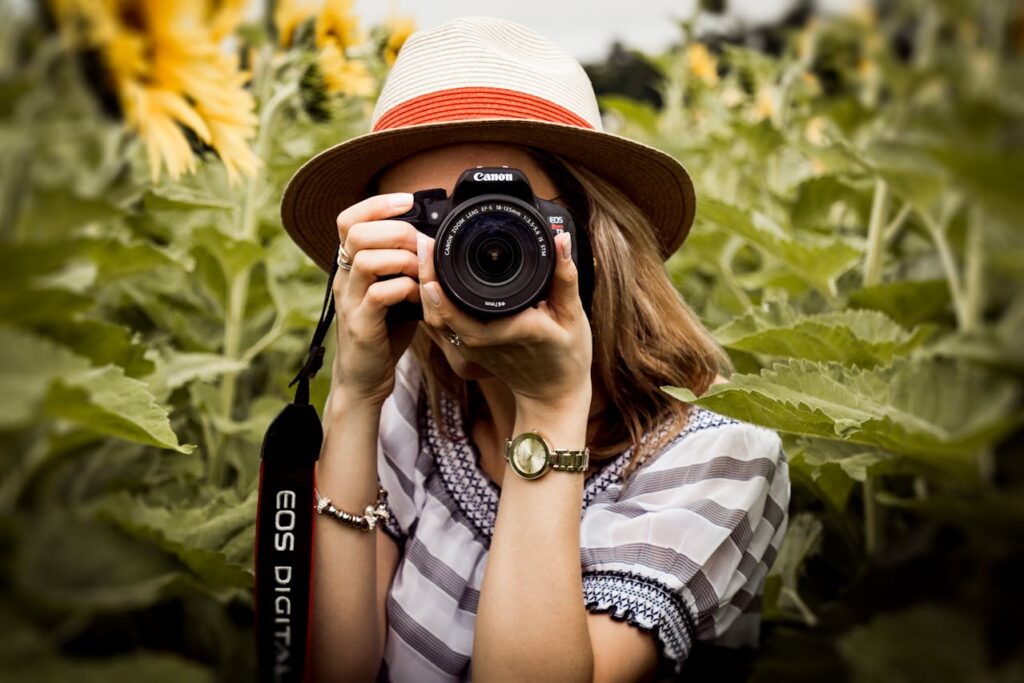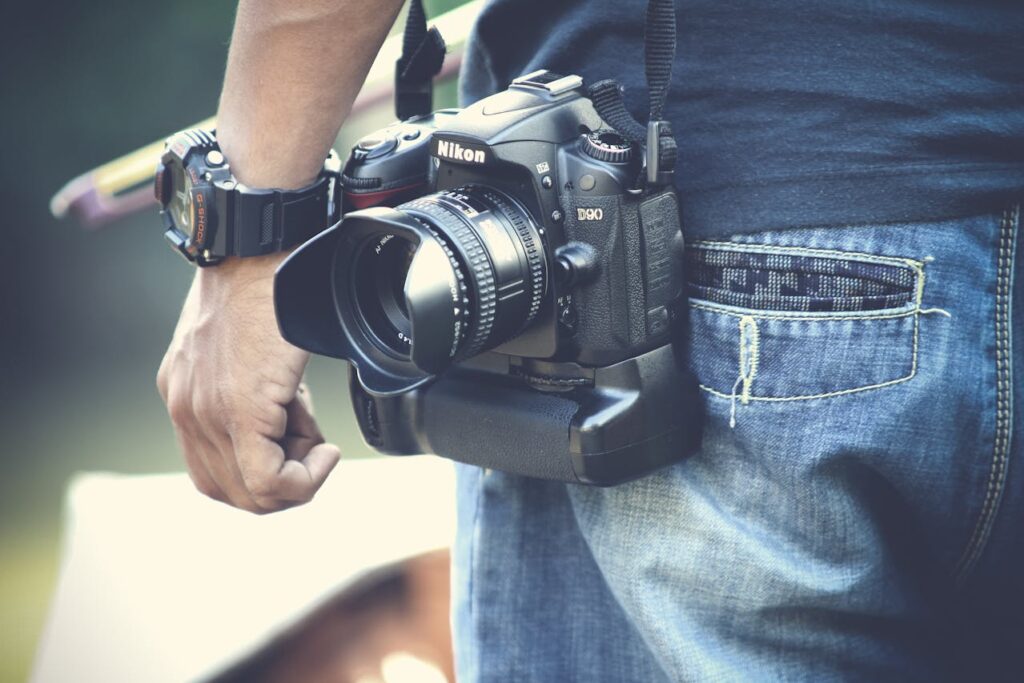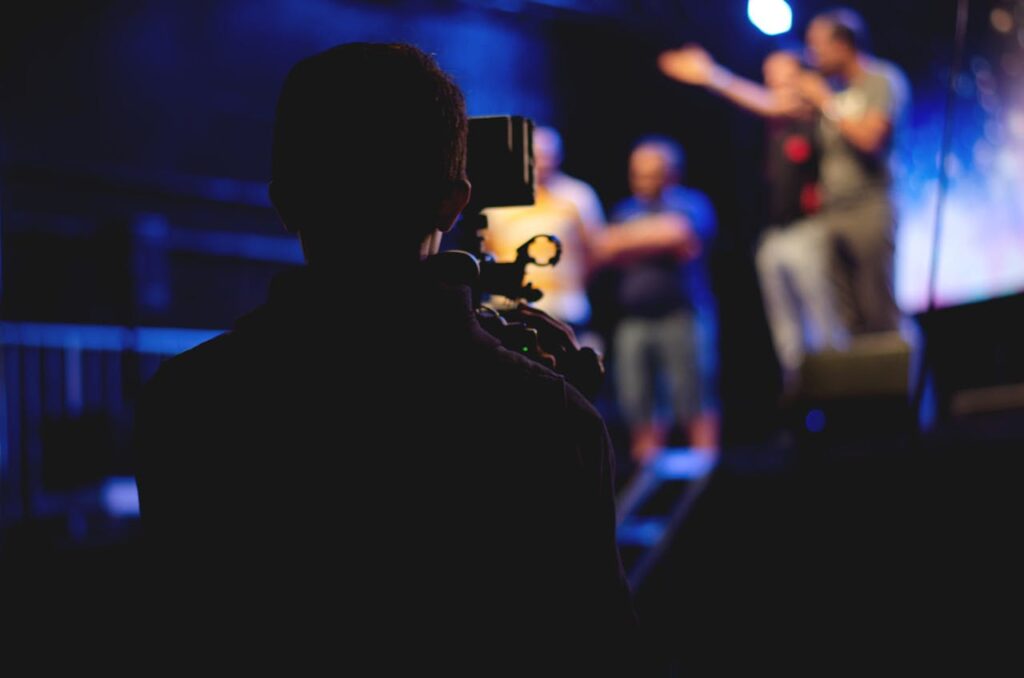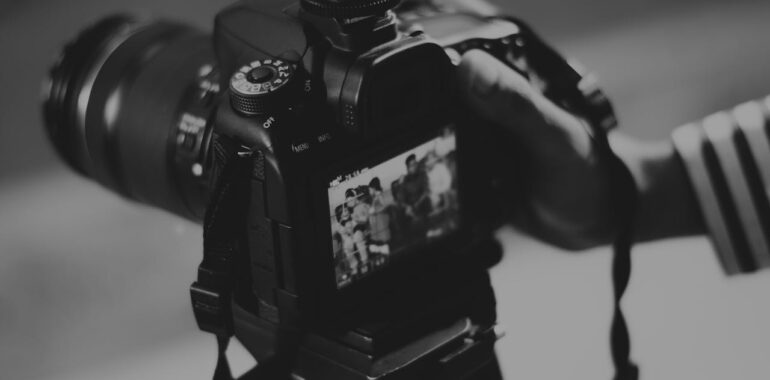Key takeaways
- A documentary photography workshop is not just ideal for documentary photographers, but can be a great asset for all aspiring and professional photographers.
- Through the program, you develop essential photography techniques and skills alongside proficiency in documentary photography, including its concentration areas.
- Essential photography skills include storytelling, camera settings, exposure, digital image processing, and editing.
- Concentration areas within documentary photography are cultural, historic, and social documentary photography.
- You can pursue a documentary photography course from Domestika, an online learning platform offering multiple courses in several languages.
- Additionally, you can learn from industry professionals through Skill Share, such as Ami Vitale, who offers a documentary photography course on the platform.
Digital photography is so much more than just picking up a camera and clicking images. The field is incredibly vast, with many different sub-niches, one of which is documentary photography. What sets each field apart are intricacies, forms of expression, visual aesthetics, and so on. When it comes to documentary photography, it’s less about your point of view or aesthetic sense and more about showing the whole picture, the reality.
This guide delves into the specialization in depth, discussing the essential skills and techniques you will learn in a documentary photography workshop.
What is documentary photography?

Documentary photography is a type of photography that focuses on capturing places, events, and people that hold historic, political, or social significance. It primarily revolves around capturing or documenting life, real-world scenarios, and events as they are. Documentation through digital photography is perhaps its best description.
Naturally, when it comes to documentation, there is no room for any external influence. Nor is it a momentary or fleeting task. Those pursuing documentary photography are often engaged in long-term projects, sometimes spanning multiple months to years, depending on project type.
Documentary photography is in itself a vast field encompassing multiple concentration areas. These include:
- Social documentary
- Cultural documentary
- Historic documentary
Social documentary photography
Through social documentary photography, photographers use digital media to capture social issues such as poverty, war, environmental concerns, and so on. Here, the core focus is to explore social and political issues in society, often to increase awareness about the subject, promote change, or challenge perspectives.
The goal of social documentary photographers is often to capture raw emotions in images. This form of photography is guided by an ethical code of conduct that respects the privacy of the subjects. The images produced are unfiltered, showcasing genuine situations and ground realities.
You may be interested in: Exploring digital photography jobs | A complete career guide
Cultural documentary photography
Cultural photography aims to capture the lifestyle, traditions, and values of people through images. Photographers working in the field try to capture the very essence of people through their rituals, festivals, daily life, traditional arts and crafts, architecture, and heritage. Here, photographers spend months living with the community to learn their way of life, experience their uniqueness, and try to capture their identities through digital photography.
Related: Explore colleges for a digital photography degree
This form of photography is also guided by a set of ethics and principles. These ethics ensure the protection of the privacy of the subjects and integrity of the subjects. Cultural photography aims to bridge cultural divides by raising awareness of different cultural practices, preserving fading traditions by publishing them and making them eternal, and celebrating uniqueness.
Historic documentary photography
Historic documentary photography is an art form that captures historical events, places, and people involved in events with historical significance. These can include ones with an impact on society, such as the suffragette movement, the World Wars, the Great Atlantic Migration, or the Great Migration of African Americans within the United States.
The examples are endless, and every one is important. This form of documentary photography is more educational and informative, with an emphasis on emotional context. It is ideal for those who are passionate about preserving history.
What skills will you learn in a documentary photography workshop?

Photography is a diverse field with many different niches and concentration areas, such as fine art photography, commercial photography, photojournalism, and so on. Each type of photography requires different techniques to be able to capture the images that fulfill the criteria for falling into that particular category. When it comes to documentary photography, you can learn all you need to know about the field and its practice through a documentary photography course or workshop.
Related: Digital Photography | Frequently Asked Questions (FAQs)
Through the program, you will develop some essential photography skills in combination with documentary photography techniques to build comprehensive knowledge and skills in the field. You can use the essential skills to explore different types of photography before you settle into the niche you feel most comfortable in.
Camera settings
The first thing you will learn in a documentary photography course is the camera itself. You will become familiar with the equipment and learn camera settings. In this phase, you will familiarize yourself with the camera settings such as exposure, shutter speed, focal point, and more. By learning the camera settings, you will be able to take charge of the images you click and switch from automatic shooting mode to manual.
Image composition
Composition is among the most important aspects of photography. It includes how the picture is framed, what’s included in the frame, and the subject placement. The image composition guides the viewer’s eye to what the photographer wants to show. Moreover, it plays an important role in conveying the emotions the photographer was trying to capture.
Exposure
Light plays an essential role in photography as it helps set the mood for the images. Exposure is essentially the amount of light you let enter the lens. If you want to create a moody setting, you can reduce the exposure. But if you want to create a light and airy feel, you can increase the exposure to create a majestic setting full of light. An in-depth understanding of exposure can significantly enhance a photographer’s creative ability, allowing them to experiment with and set different mood lighting.
Digital image processing
Through digital image processing, you can analyze and even manipulate or alter images using digital technologies, tools, and software. It allows you to resize images, enhance certain subjects, compress the image, and so on. These skills are essential for the preservation of image quality, especially during digital transfers. Moreover, these are skills that are desirable among photographers as they guarantee the delivery of the highest quality images.
Editing
Post processing involves fixing the lighting, increasing the sharpness, or even introducing special effects such as blurring the surroundings, adjusting the brightness, colours, and so on. As a photographer, proficiency in post-processing tools and software can prove incredibly beneficial to you. These enable you to add a watermark to your images, adjust the lighting, saturation, colors, and hues to produce unique results. These enable you to experiment with creativity, allowing you to add a personal flair to the images you click.
Storytelling
However, the most important skill that you will learn through a documentary photography workshop is storytelling. The art of storytelling is a useful skill as it is a transferable skill that proves useful in virtually all digital media and photography jobs. Through storytelling, a photographer can build narratives, develop the right image sequence, and produce a photo series that can help viewers understand what the photographer wants to show.
Find the best documentary photography course in the US

If you are interested in developing the skills needed to pursue documentary photography professionally or just developing the skills needed to become a professional photographer, here are some courses and workshops you can explore.
Related: Graduate with a bachelor of arts in photography
Documentary Photography for Commercial Use
Cost: $49.99
If you want to learn documentary photography for commercial use, Domestika, an online learning platform, offers the ideal program for you. It is taught by Contora Fotografia and Video’s industry professionals with significant professional experience. The program has great reviews and is available in several languages, including English, Spanish, Greek, and French, among others.
Documentary Photography for Mobile
Cost: $49.99
Those who don’t want to carry and take care of heavy equipment but still want to take up documentary photography, this is the course for you. You can take up Documentary Photography for Mobile by Cris Burmester. The program is available on Domestika in multiple languages and has 100% positive user reviews. It will help you understand how you can leverage the power of your mobile camera and digital tools to capture professional images.
Documentary Photography – Capturing People and Places
If you are looking for an introductory documentary photography course, this is the one for you. Photographer Ami Vitale shares her professional experience, tips, and techniques in her online course “Documentary Photography – Capturing People and Places”. The course is available on Skillshare and features 7 classes, each just under an hour long. Moreover, you can simply get started for free, which makes it an incredible opportunity.
How does documentary photography differ from other forms of photography?
Unlike other forms of photography, documentary photography focuses on accuracy, ensuring the photographer documents the scene and life as it is, rather than focusing on artistic expression or staged photography as in other forms of photography. The field is often intermixed with photojournalism.
However, the two differ greatly as photojournalism focuses on breaking news and features a shorter time frame. Photojournalists are always looking for the next story to break, or just to capture any updates in an evolving news story. In comparison, documentary photography follows a story line and a set concept. Either way, professional photography programs can help you develop the expertise needed to pursue a career in the field.
Related: Are photography and video editing courses useful?
Enroll in a documentary photography workshop to get started as a professional in the field!
Whether you are a professional photographer or an aspiring one, a photography workshop, even that for documentary photography, can prove incredibly beneficial for you. It not only helps you develop essential photography skills, but it also helps you build a network, get additional insights, obtain constructive critique on your pieces to help you improve your work, and so much more. Additionally, you can include these additional workshops in your resume to show that you are up to date with the latest tools and technologies, which can enhance your eligibility.
So if you are on the fence about whether or not a document photography course is the right one for you, this is your sign to enroll in one. Even if you find documentary photography isn’t for you, you will still walk out with new skills and an earned certificate, which can lead to career advancement.
